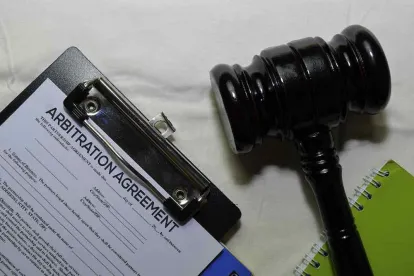Saying the U.S. Supreme Court ruling in Viking River Cruises, Inc. v. Moriana, No. 20-1573 (June 15, 2022), that bilateral arbitration agreements governed by the Federal Arbitration Act (FAA) may require arbitration of California Private Attorneys General Act (PAGA) claims on an individual basis only, perhaps should be modified to avoid “unwarranted and incorrect resolution of the unbriefed issues of contract construction and state law statutory standing[,]” the respondent, Angie Moriana, has petitioned the Court to reconsider the decision.
On July 6, 2022, Moriana, the named plaintiff-employee at the center of Viking River Cruises, filed a petition for rehearing with the Court. In the question presented, Moriana asks if the Court’s opinion should be modified to avoid “unwarranted and incorrect resolution of the unbriefed issues of contract construction and state law statutory standing[.]”
In the petition, Moriana states that she is not asking the Court to revisit its decision that (1) the FAA does not preempt the Iskanian rule that prohibits the use of an arbitration agreement to waive an employee’s entitlement to pursue “representative” claims on behalf of the state for PAGA civil penalties; but that (2) the FAA does preempt Iskanian to the extent it incorporates a rule of “claim joinder” precluding enforcement of an arbitration agreement that separates a plaintiff’s “individual” PAGA representative claim from her “non-individual” PAGA representative claim.
Instead, Moriana argues that the Court’s opinion went beyond the federal question presented and involved the unbriefed issue of state-law contract interpretation and statutory construction that exceeded the Court’s authority. Moreover, she argues the opinion was contrary to the contract language and applicable California law. Moreover, she states that the opinion conflicts with rulings by the California Supreme Court pertaining to standing for PAGA actions.
Moriana’s proposed modification to the Court’s decision would be significant. The Court’s analysis of the severability language in Viking River Cruise’s arbitration agreement, as well as its analysis of statutory standing under PAGA, is what led the Court to conclude — to employers’ benefit — that “the correct course is to dismiss” the non-individual PAGA claims of other allegedly aggrieved employees when the named plaintiff must arbitrate their individual PAGA claims pursuant to an arbitration agreement.
For a rehearing to be granted, a majority of the justices must agree. Such grants for rehearing are uncommon.






 />i
/>i

